It all started with some leftover manure.
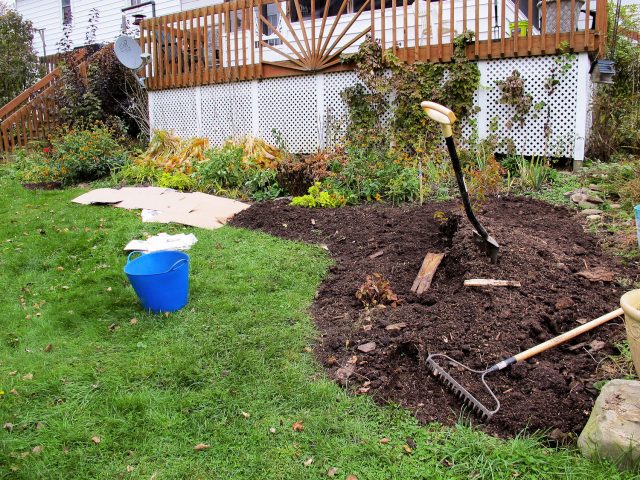 Three years ago I had to dispose of the composted manure left over from a garden project before winter.
Three years ago I had to dispose of the composted manure left over from a garden project before winter.
Our house was built into a steep hill. The back deck is a half story above ground because the backyard is lower. I cleaned up the shrubs that had been stuffed into a narrow border at the back of the house by previous owners. My daughter built a potager that extended past the deck on the south-facing side of the home. This created an awkwardly-shaped area that was difficult to mow, and didn’t even look right. I wanted to draw a straight line from the corner potager to the deck railing.
I expanded the deck bed on the back by covering the sod with cardboard and then well-rotted horse manure. I had tried this technique It had not worked at the old home. There were two key differences this time: 1) I did not plant until spring the following year, and 2) I was not trying to smother the bindweed. (A friend once said that the best thing to do to get rid of bindweed in your garden was to move. She wasn’t kidding. This is how I did it.
I was able to have All. That. Space. Space. To decide what to plant, I needed a set of criteria. The old house had a spot that I wanted to plant a white heirloom like Madame Hardy with lavender-blue bellflowers and apricot-foxgloves. The old house never had that spot, but when I saw the bellflowers, I remembered I also had an apricot rose, (‘ crown Princess Margareta ‘), and so I decided to go with the color scheme of apricot, purple-blue and white. The yellow-green accents soon became hostas, golden feverfew and golden hops. Sometimes the lavender-blue turned into a deep plum.
By June there were still some gaps, but the garden in my mind’s eye was looking great.
Fast forward to 2018 . . .
The year starts off with orange and apricot daffodils. This is ‘Kedron’ with an unnamed plum-colored hellebore.
This dreamy iris was growing in the Parking Pad bed when we moved in, but I moved it to the deck bed because it fit so well with the color scheme.
The ‘Coral Charm’ peony moves a bit out of the apricot color range but it does play well with the other flowers.
Looking down from the deck: 1. Summer Shandy™ Hop Vine, a trial plant from Proven Winners 2. ‘Blue Moon’ dragon head (Dracocephalum ruyschiana) 3. Rosa rugosa ‘Alba’ 4. Kodiak® Black Diervilla 5. ‘Coral Charm’ peony
In late June and into July, the apricot roses have their first flush of bloom.
I also added a trial plant of Proven Winners’ ‘At Last’ rose, here with a hardy geranium that I originally found in the Slope Garden, probably ‘Rozanne’.
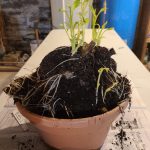



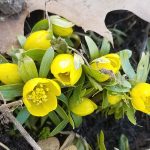


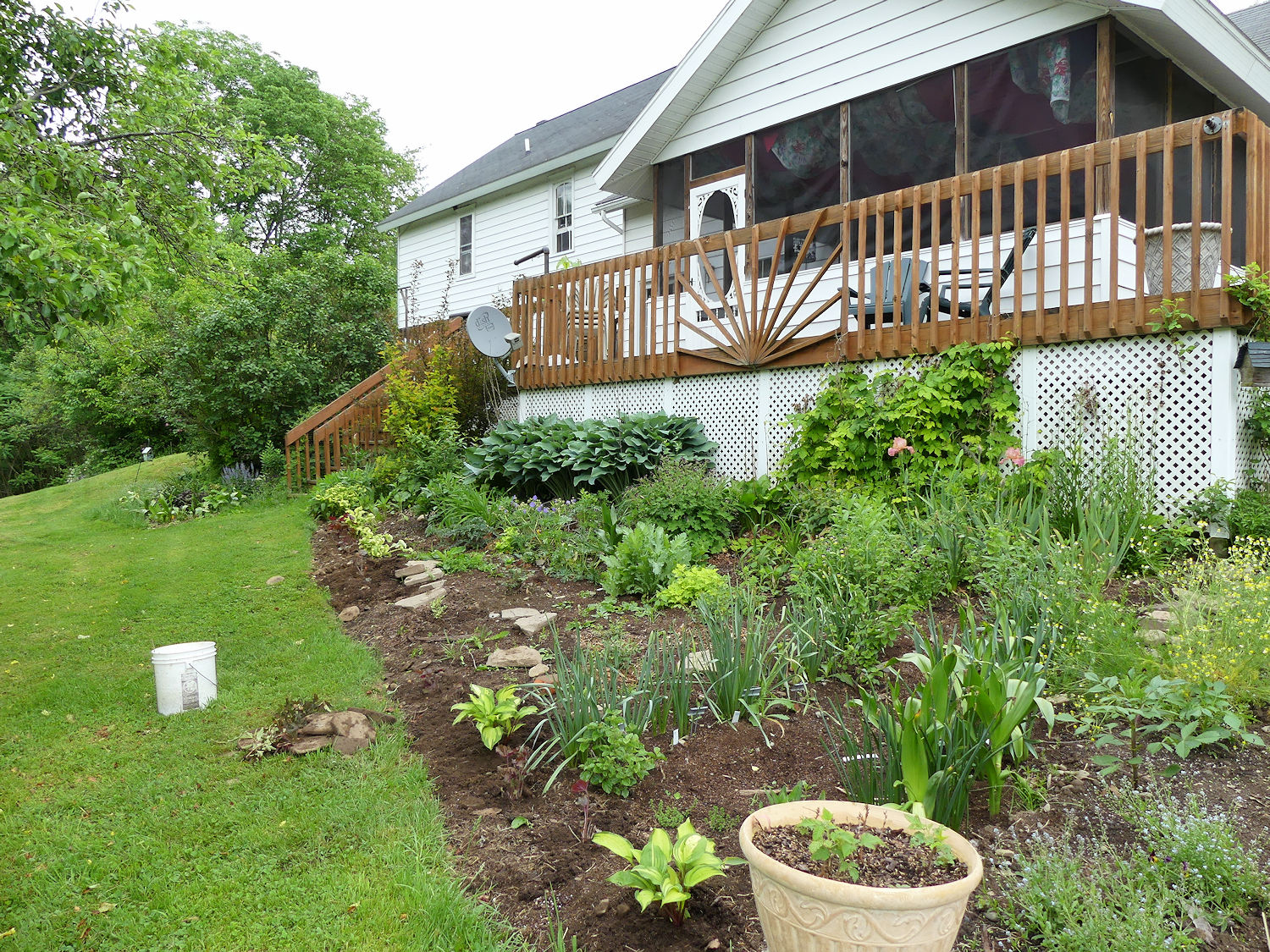
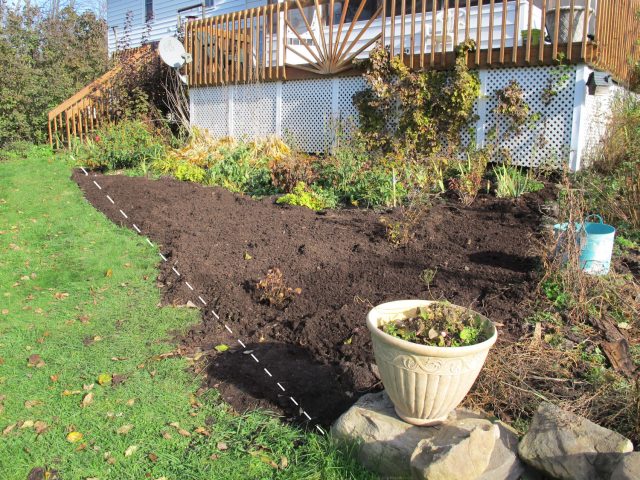
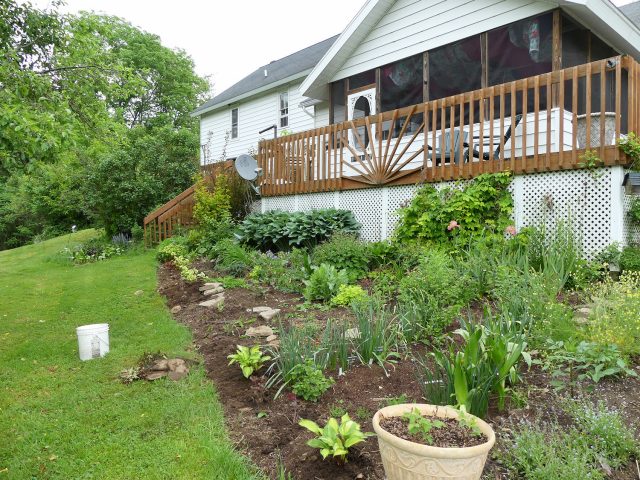
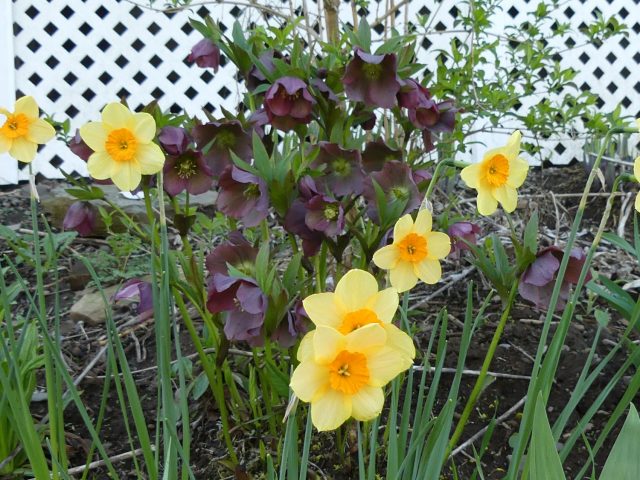
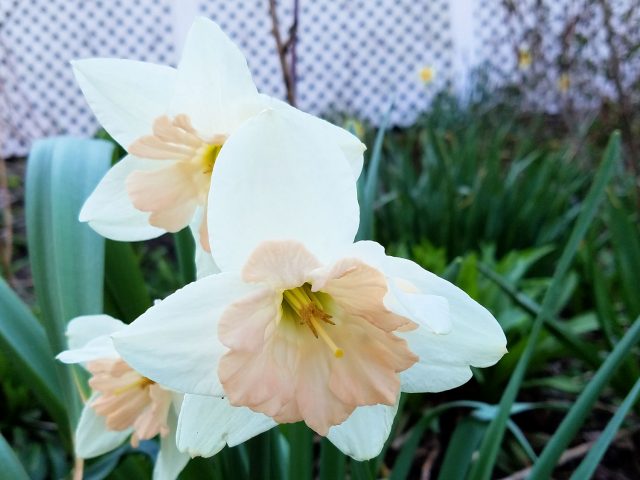
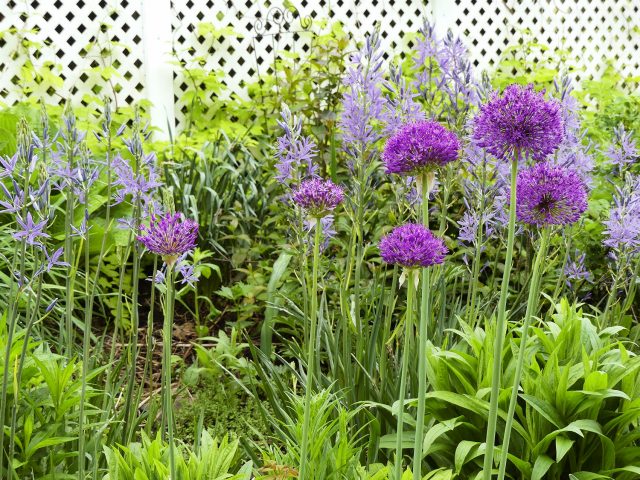
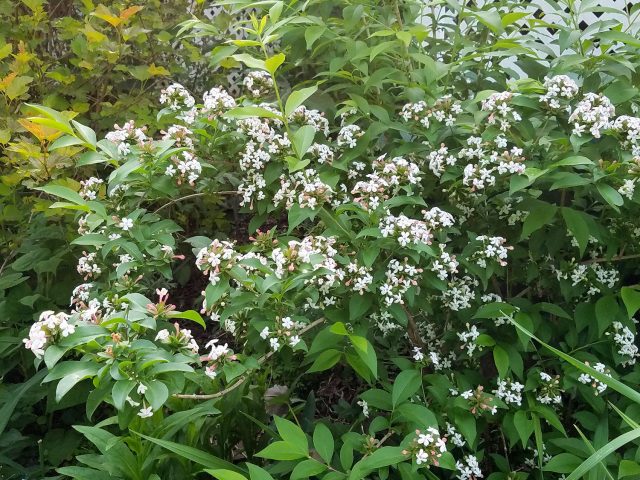
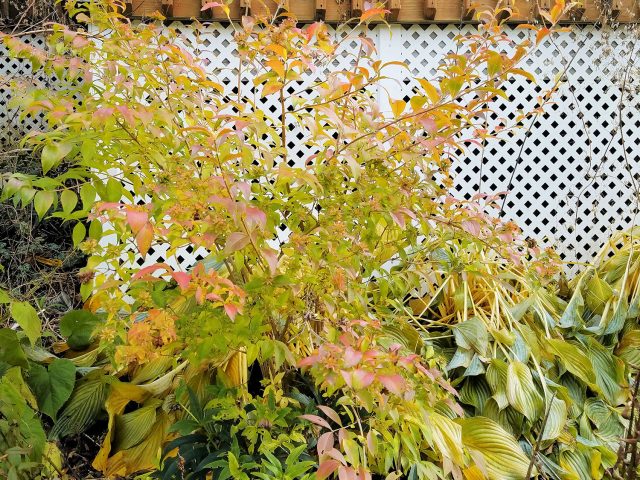
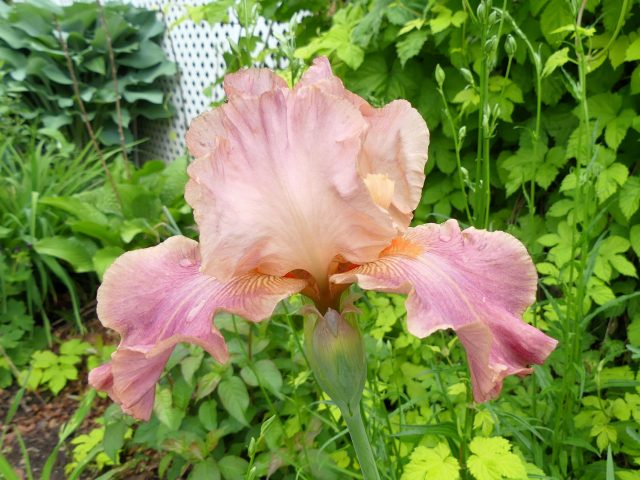
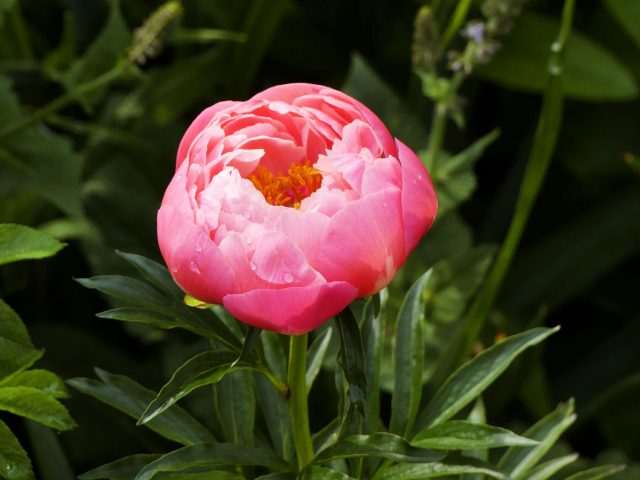
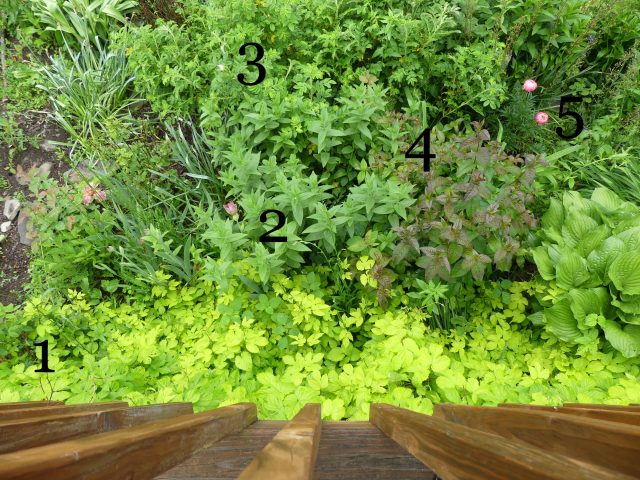
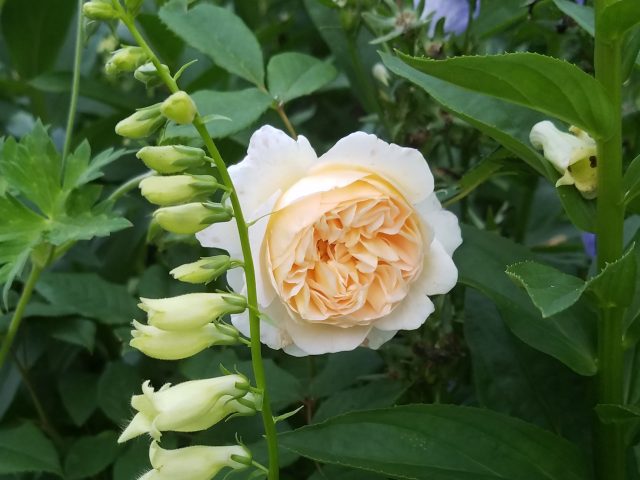
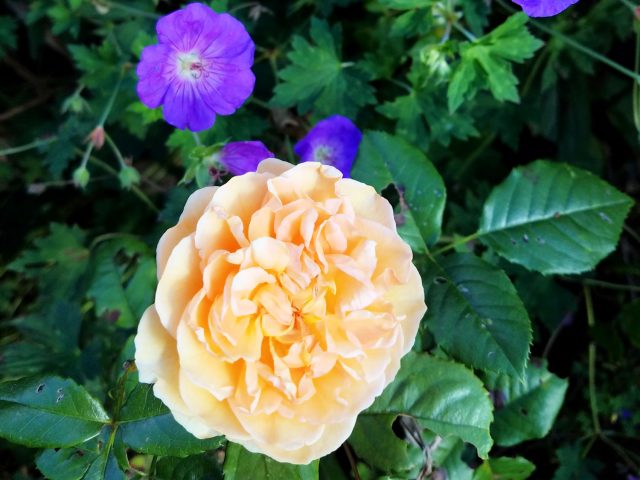
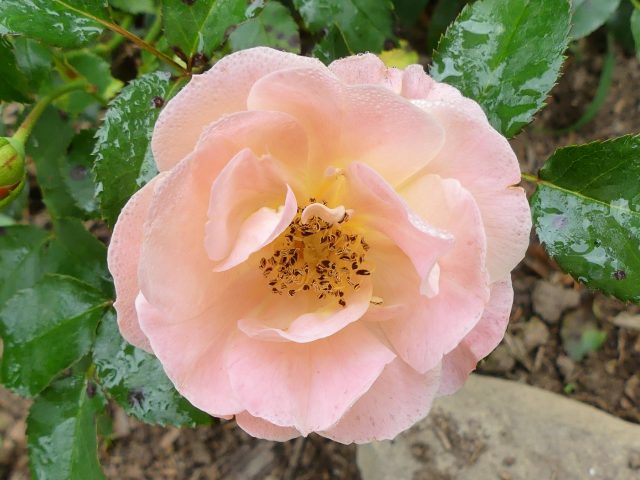
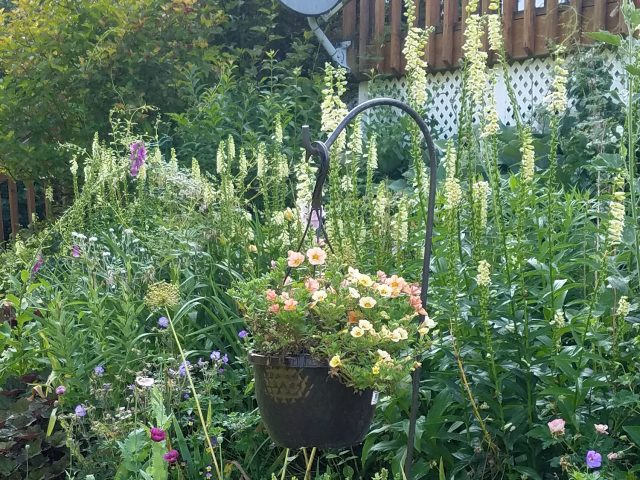


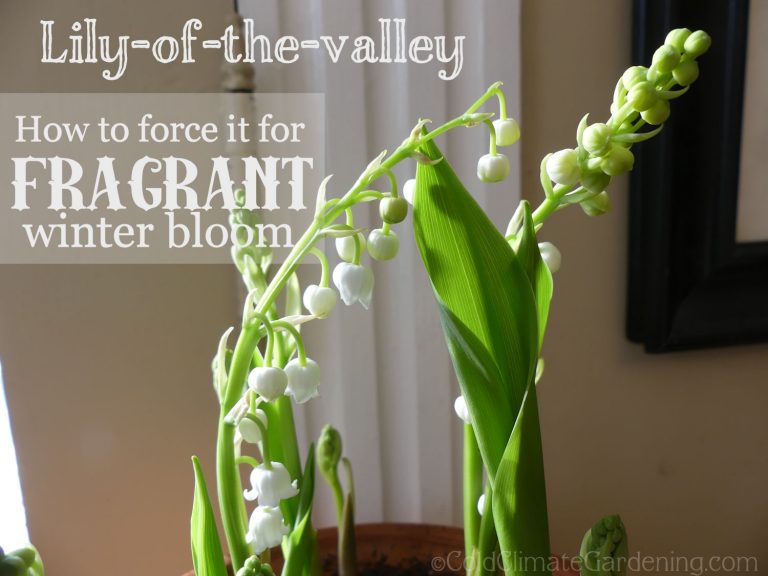
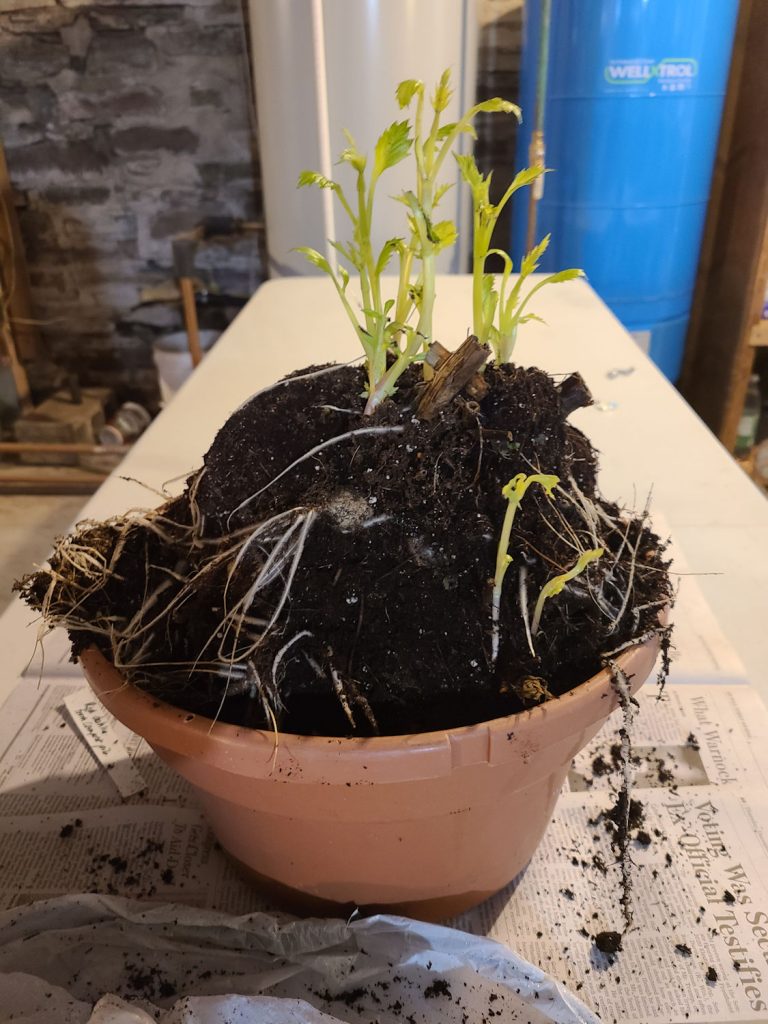
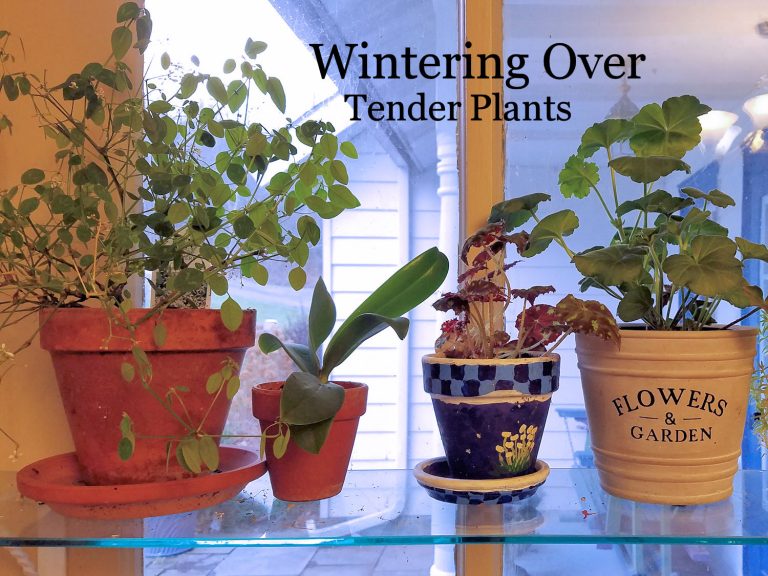
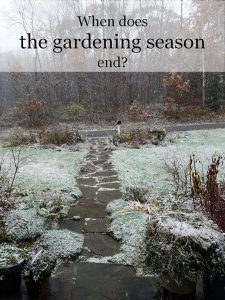

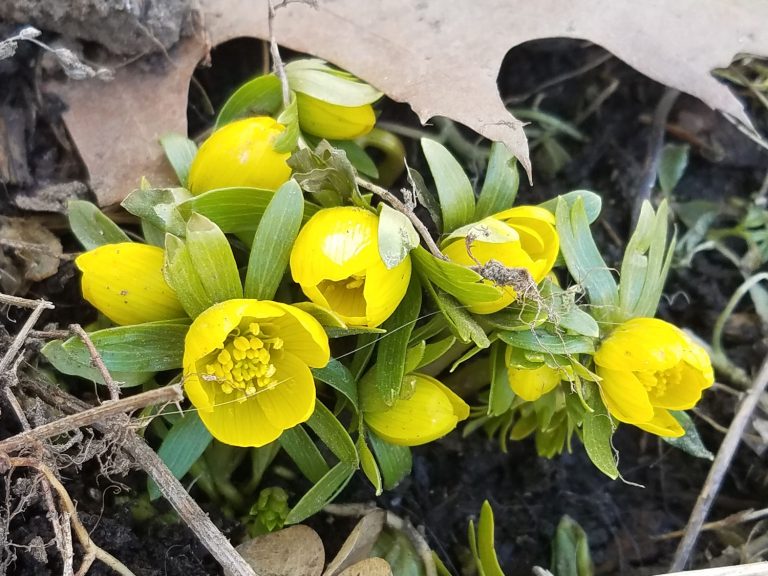
+ There are no comments
Add yours